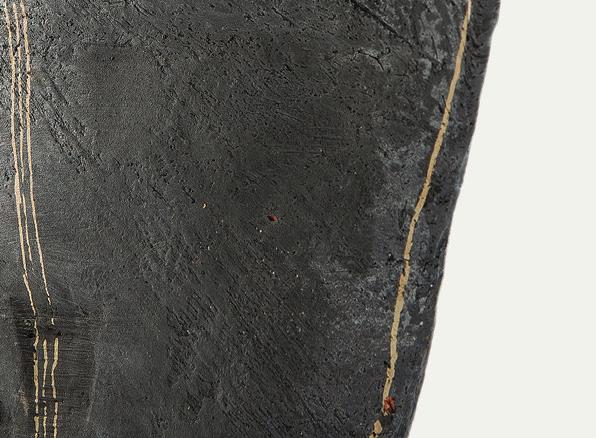PENGUIN CLASSICS
UK | USA | Canada | Ireland | Australia India | New Zealand | South Africa
Penguin Classics is part of the Penguin Random House group of companies whose addresses can be found at global.penguinrandomhouse.com.
Penguin Random House UK
One Embassy Gardens, 8 Viaduct Gardens, London SW 11 7BW penguin.co.uk
Originally published in French by Gallimard 1990
Published in the United States of America by The University of Michigan Press 2010 First published in Great Britain by Penguin Classics 2025 001
Copyright © Édouard Glissant, 1990
Introduction and translation copyright © The University of Michigan Press, 2010
Penguin Random House values and supports copyright. Copyright fuels creativity, encourages diverse voices, promotes freedom of expression and supports a vibrant culture. Thank you for purchasing an authorized edition of this book and for respecting intellectual property laws by not reproducing, scanning or distributing any part of it by any means without permission. You are supporting authors and enabling Penguin Random House to continue to publish books for everyone. No part of this book may be used or reproduced in any manner for the purpose of training artificial intelligence technologies or systems. In accordance with Article 4(3) of the DSM Directive 2019/790, Penguin Random House expressly reserves this work from the text and data mining exception.
The moral rights of the author and translator have been asserted
Set in 11.25/14pt Dante MT Std Typeset by Jouve (UK ), Milton Keynes Printed and bound in Great Britain by Clays Ltd, Elcograf S.p.A.
The authorized representative in the EEA is Penguin Random House Ireland, Morrison Chambers, 32 Nassau Street, Dublin D 02 YH 68
A CIP catalogue record for this book is available from the British Library
ISBN : 978– 0– 241– 73311– 0
Penguin Random House is committed to a sustainable future for our business, our readers and our planet. This book is made from Forest Stewardship Council® certified paper.
for Michael Smith, assassinated poet for the archipelagos laden with palpable death
Sea is History. derek walcott
The unity is sub-marine. edward kamau brathwaite
Translator’s Introduction
Betsy Wing
‘Je bâtis a roches mon langage.’ (I build my language with rocks.)
– Glissant, L’Intention poétique
The stumbling blocks of a translation frequently exist at its most productive points. Their usual first effect is frustration caused by obstinate resistance (on both sides), but, in their everrenewed demand for conjecture, these apparent obstacles can allow us to escape the cramped, habitual postures of our own thought. This is the hoped-for reward of translators – whose first work is to be attentive, even hopeful readers – then, with as many premonitions of disaster as prospects of opening possibilities within their own languages, they must confront the task of making these new openings available to new readers.
All of Édouard Glissant’s work, as a poet, novelist, playwright, or theoretician from the very beginning (Les Indes and Soleil de la conscience [1956], La Lézarde [1959]) has been concerned with exploring the possibilities of a language that would be fully Antillean. Such a language would be capable of writing the Antilles into history, generating a conception of time, finding a past and founding a future. It would escape the passivity
Translator’s Introduction
associated with an imposed language of fixed forms (French) as well as the folklore traps of a language that is no longer one of material production, its vocabulary fixed because stagnant (Creole). This Antillean language would provide the means for this place and its people to relate to the world as one among equivalent entities. Carrying the work of other theorists of Caribbean self-formation, such as Fanon and Césaire, into new dimensions, Glissant sees imagination as the force that can change mentalities; relation as the process of this change; and poetics as a transformative mode of history.
In an early collection of essays, L’Intention poétique (1969), Glissant made it clear that he had no interest in rejecting the language he speaks (French); his purpose would be better served by actions within it, by interrogating it. By the passionate intensity of his way of being in this language, he would force the Other to know his difference. He repeatedly destabilizes ‘standard’ French in order to decategorize understandings and establish new relations, so that the constant transformation always at work in any living symbolic system, passing into the particularity of Antillean experience, can form the vibrant grounds for a full and productive participation among world cultures now and in the future.
Throughout the body of his work Glissant has combined the discipline of analytical thought with a determined refusal to accept the logic of linear sequences as the only productive logic. For a country whose history is composed of ruptures, to accept this linearity would imply a continued blindness to its own crazed history, its temps éperdu, and acceptance of the Western European epistemological principles that claim this history as its destiny. The structure of Poetics of Relation is based more on associative principles than on any steady progress toward irrefutable proof; it is an enactment of its own poetics. Providing a sense of the new relations created in its language as
a whole – its transforming ecology – was the greatest challenge for an American English version.
The first and most obvious difficulty is presented by particular incidents in which Glissant forces new word complexes to put forward concepts of major importance to his theory. The new phrases in French, of course, are just as likely to stop readers in their tracks as abruptly as they do in English. Indeed, this is Glissant’s intent – to provide sudden contact with an unforeseen relation in language, not unlike the collisions between cultures that he sees as productive of Relation. The most acute need here is to provide the same level of clues in an American English as those existing in the first version – preferably a formula both elegant and concrete but undomesticated, not subject to common linguistic usage, a mental image ready to create a new connection. Glissant himself frequently sets the new term within its definition (though not necessarily at its first occurrence), letting context indicate the potential for expansion in its meaning. But the slightly changing contexts and Glissant’s insistence that a single term serve in every instance created difficulties not presented by words in current usage, in which local solutions are usually best. An example of this is agents d’éclat, which I have consistently translated as flash agents (having rejected a long list of candidates such as dazzlers, glamour mongers, etc., as suiting only one or two occurrences). This phrase includes, but is not limited to, our category The Media, with all the implications of shallowness, dazzle, and hegemony that this implies for us. But, as always in Poetics of Relation, activity in a concrete world is important; physical notions of the dazzling, explosive power of this agency cannot be left out. Think: flash in the pan for shallowness, the strobing flash of momentary glamour, the news flash in a sound byte from our sources. Glissant creates these metaphorical noun phrases to name the reality he sees emerging in the world. From the point of
Translator’s Introduction
view of the Métropole (Real France), Martinique and the other islands of the Antilles can seem to be ‘dust-specks on the sea,’ as De Gaulle, looking down from a plane, is said to have described them. To become other than dust, aggregating their scattered and lost histories into a concrete presence in this world – this totality-world (totalité-monde, henceforth untranslated) – the Antilles must assert their dense, opaque, rock-hard existence, as do the noun-phrases Glissant uses to push at the limitations of French. Part of controlling the substance of one’s future would lie in controlling its nomenclature.
Agents-d’éclat is a terse example of the merging of various discourses in Glissant’s work. Agents – has resonance in everyday language (agents de presse, etc.) but also carries overtones of political agency. Éclat (and éclater, the verb) is frequently repeated throughout Glissant’s poetry and prose. Éclat in the case of agents d’éclat has a somewhat pejorative sense. It is the sort of dazzle that can cause a people to lose its footing. In numerous other instances, however, it represents the sudden movement, the explosion onto the contemporary scene of ‘marginal’ peoples, and the possible brilliance of their future. Always it is metaphorical and poetic.
Another word complex, the verbal phrase: donner-avec, relays the concept of understanding into the world of Relation, translating, contesting, then reconstituting its elements in a new order. The French word for understanding, comprendre, like its English cognate, is formed on the basis of the Latin word, comprehendere, ‘to seize,’ which is formed from the roots: con- (with) and prendere (to take). Glissant contrasts this form of understanding – appropriative, almost rapacious – with the understanding upon which Relation must be based: donneravec. Donner (to give) is meant as a generosity of perception. (In French donner can mean ‘to look out toward.’) There is also the possible sense of yielding, as a tree might ‘give’ in a storm
xiv
Translator’s Introduction in order to remain standing. Avec both reflects back on the comof comprendre and defines the underlying principle of Relation. Gives-on-and-with is unwieldy, but unfamiliar tools are always awkward.
Balking at the task of translation is a questionable practice for a translator, but, along with totalité-monde, certain of Glissant’s coinages remain here in French.* In some cases, no matter how they were rendered in English, short of writing a complete sentence at each occurrence, a significant portion of the sense was gone. The final judgment came down to the use value of the translated words, the use (not necessarily usual) of the sign in question. While the best of translations can impart new levels of meaning to common words, an additional layer of impenetrability is of little or no use.† Three related images of the world set forth by Glissant: la totalité-monde, les échos-monde, and le chaos-monde, have been left untranslated here, therefore, not only because of the inherent difficulty in translating them concisely but also because they function as neologisms – no more instantly acceptable in French than in American English; (though, following the same principle, the translation includes many dutiful, if not inspired, neologisms – for example, flash agents, etc.). More important, the problem lies in their structure, which cannot be duplicated in English. The article clearly modifies the first element (la totalité, les échos, le chaos), but the second element (monde) is not a mere modifier, as it would appear to be if the normal English reversal of terms took place (that is, world-totality, world-echoes, world-chaos). In fact, in this third instance all the implications of ordered chaos implicit in
* Untranslated French words are further discussed in the notes to the text or glossary.
† This is not entirely true. To a student of ideologies they surely mark interesting moments when the languages, as perceived by a particular translator, are mutually resistant beyond repair.
Translator’s Introduction
chaos theory would slip away, leaving the banality of world disorder. Nor are these guises of the world (the world as totality, etc.); they are identities of the world. The world is totality (concrete and quantifiable), echoes (feedback), and chaos (spiraling and redundant trajectories), all at once, depending on our many ways of sensing and addressing it.
From the beginning of the text, in addition to these compoundings, there are idiosyncratic usages that erupt and remain, assertively subsisting through repetition.* Errantry (errance) will be the first of these. Here Glissant stresses overtones of sacred mission rather than aimless wandering; errance, its ending linked for the contemporary reader with deconstruction’s validation of différance, deflects the negative associations between errer (to wander) and erreur (error). Directed by Relation, errantry follows neither an arrowlike trajectory nor one that is circular and repetitive, nor is it mere wandering – idle roaming. Wandering, one might become lost, but in errantry one knows at every moment where one is – at every moment in relation to the other. This is a word in which Glissant’s literary formation, his ‘high’ culture voice, is particularly apparent. A word out of the past, it is retrieved for the use of a people weakened and oppressed as much by imposed cultural interpretations as anything else; so that it enters the spiraling, transformative mode of Relation, in which every voice can be heard and all can be said.
Brought at the age of ten to Fort-de-France, Glissant received the best of French colonial education at the Lycée Schoelcher, where Aimé Césaire was the ‘prof’ of modern languages. Like other children in the colonies dependent on France, he too had to learn about ‘nos ancêtres les gaulois’ – those spurious ancestors who had somehow buried the genetic ancestors in
* Glissant’s particular use of the words langue and langage as well as imaginaire is discussed both in the notes and in the glossary.
Translator’s Introduction
nonhistory. He also read the same ‘classics’ of Western literature, probably encountering what he describes as the great book of Mediterranean intelligence, the Odyssey, at precisely the same moment in his development as every French schoolboy in the Métropole. And, like other intellectually promising youths in the 1940s, prepared to become ‘more French than the French,’ his own odyssey, his errantry, took him from Martinique to pursue education to its farthest reaches – the level of the doctorat d’état – in Paris.
Creole is Glissant’s ‘mother’ tongue but remains truly that – a language of intimacy and friendship. French, the language of empowerment in Martinique, is his ‘natural’ (that is, culturally provided) literary language. But it is important to Glissant that he write a French different from the so-called standard French of the Métropole: one made supple by Creole, one ready to incorporate all the aspects of its formation, one cognizant of the history of the Antillean people and ready to imagine for them both past and future. His analysis of the problems in Martinique emphasizes the impact of widespread, active repression of those parts of the not-quite-lost history considered shameful (where the mulatto elite is still more likely to hark back to some imagined Carib ancestor than to its African heritage). But though the first rupture with history occurred at the Middle Passage with the imposition of slavery and the French language, retrieving the history it-would-be-possible-to-know does not mean refusing the imposed French – now unquestionably part of what is sought in a quest for cultural self-definition. Utilization (outilization), tooling of the past to serve the present, is Glissant’s work.
The word errantry has archaic overtones in English that, though not necessarily present in errance, do play an interesting part elsewhere in Glissant’s writing. French readers of Glissant’s work would have a very clear sense that his vocabulary
Translator’s Introduction
was not entirely that of mainland France, that it was something particular, Antillean perhaps, and his use of archaisms would be one of the clues.* The classical definition listed in the dictionary is frequently the one that suits the context – the usage example will be from Racine or Corneille. This practice, while a mark of Glissant’s classical French education, also bears traces of the isolation of the culture of Martinique. There are words still in use on the islands that have slipped from current usage elsewhere. They provide a certain formality of tone, which is frequently all I have been able to salvage of their effect in French, but the translation contains a few lurking archaisms drawn in general from the classics-burdened, educated US South.
It is even more difficult to give any sense of the Creolisms that are at work in Poetics of Relation. In the case of Creole words, only when there was some American idiom that did not trivialize Glissant’s thought or lend it an air of the ridiculous did I attempt to mark the term with any particular effect.† Simply sprinkling his text with Creole words, however, would accomplish very little for Glissant. It is the structural elements of Creole that are most important to his project of creating a language adequate to Antillean experience. This Antillean French would not leave Creole to languish in folklore or preciosity but would use some of its working principles.
In Creole, as in the African languages that formed its syntax,
* A few examples of this are Glissant’s use of the word héler, common enough in Martinique for ‘to call out’; or roidissement, an old form of raidissement, ‘stiffening’; or convoyer, meaning ‘to convey’ more than ‘to convoy.’
† Examples here would be: d’un seul balan (Poétique, 218). Balan is Creole for ‘soaring, flight, speed,’ etc., which the idiom ‘at one fell swoop’ translated well; and L’ici-là (Poétique, 204), which has the sound of modernity we are accustomed to finding in French critical thought of the late twentieth century, but marked here by the directness of country speech: ‘this-here.’ A few Creole words remain untranslated but defined in the glossary. As Glissant remarked, ‘The English readers are going to know more than the French.’
xviii
Translator’s Introduction the limits between classes of words are less watertight than in French. That is, a noun may work as a verb, or vice versa, without calling undue attention to itself.1 Other contemporary writers have employed this practice to escape hypercoded language constructions and to stress the transformative nature of their own writing. The demiurgic voice of Glissant’s ‘prof,’ the first great Martinican poet, Aimé Césaire: ‘I who Krakatoa . . . who Zambezi . . .’ comes to mind.2 Another writer of cultural transformation, Hélène Cixous, part of whose poetic praxis depends on canceling ‘fixed’ barriers to empower women, also makes frequent use of this device.3 Such crossovers play a part in Glissant’s attempts to render French more supple. They also work as instances of métissage, a word whose primary use describes the racial intermixing within a colony and its contemporary aftermath but which Glissant uses especially to affirm the multiplicity and diversity of beings in Relation. On a larger scale the inclusion of various sorts of writing – the familiar, the poetic, the hortatory, the aphoristic, the expository – without placing more value on one than another, works toward a similar synthesis.
Creole culture in Martinique still interrelates with the syncretic and oppositional practices of Vodou, in which the future may be influenced, among other ways, by Vévés, figures traced on the ground. Glissant is very attentive to textual geography: punctuation, markers, spacing. In all of his writing, including Poetics of Relation, this graphic element is important – much as one expects it to be in poetry. Vodou’s rites of transformation project the world as it should be; Glissant projects language as it should be. Even his use of suffixes and creation of compound words with their ritual dash plays a part in this geographical writing.
Strategies of orality, present in Creole, continue to mark spoken French in Martinique and lend an oracular tone to
xix
Translator’s Introduction
Glissant’s language. One word will unleash another through association or some deeper, almost subconscious logic into powerfully rhythmic sentences. The discontinuities in the text, the melding of discursive syntax with a language whose beat is punctuated by repetition and improvization (La Cité de Platon est pour Platon, la vision de Hegel pour Hegel, la ville du griot pour la griot’ [Poétique, 208]), provide almost constant examples of this.
This oral tradition remains clearly present in the Creole proverbs and sayings that constitute the familiar wisdom of Martinique. These formulations exemplify continuity but in form are discontinuous. When this form is employed by a philosopher, it is referred to as ‘aphorism,’ and, when the surroundings of these discontinuous statements are lost in history, we think of them as ‘fragments.’ The section of Poetics of Relation entitled ‘That Those Beings Be Not Being,’ a sequence of oracular riddles, at first (and finally) leads to comparisons with Heraclitus, but the suitability of their structure to Glissant’s project lies in its reproduction of one of Creole’s most enduring aspects: the proverb form – memorable because it is concise, repetitious, rhythmic, and opaque. Though Creole may be based on a ‘succession of forgettings’ (83), its formal structures can be used to induce memory.
Glissant’s intent, finally, is to realize Relation in concrete terms – in which language is made of rocks and words and in which the future can be made to open for the Antilles by beating a time other than the linear, sequential order of syntax. Verb, noun, subject, object, are not fixed in their places because, in the words of Glissant, ‘in Relation every subject is an object and every object a subject.’
Notes
1. Dictionnaire Créole Français, by Ralph Ludwig, Daniele Montbrand, Hector Pouillet, and Sylviane Telchid (Paris: Servedit/Éditions Jassor, 1990), 12.
2. Aimé Césaire, ‘Lost Body,’ The Collected Poetry, trans. Clayton Eshleman and Annette Smith (Berkeley: University of California Press, 1983), 243.
3. See Hélène Cixous, The Book of Promethea, trans. Betsy Wing (Lincoln: University of Nebraska Press, 1991), xi, 9.
Glossary
‘
Glossary: for readers from elsewhere, who don’t deal very well with unknown words or who want to understand everything. But, perhaps to establish for ourselves, ourselves as well, the long list of words within us whose sense escapes or, taking this farther, to fix the syntax of this language we are babbling. The readers of here are future.’
– Édouard Glissant, Malemort, 231
(Words discussed in the introduction or notes are not included here.)
antillanité: ‘A method and not a state of being,’ according to Glissant. Contrast this with his idea of what creolité (creoleness) is about. Antillanité is grounded concretely in affirmation of a place, the Antilles, and would link cultures across language barriers. Dash translates this as ‘Caribbeanness’ in Caribbean Discourse.
békés: Creole word used originally to designate the white planters but now also any of their (white) descendants in Martinique. carême: The dry season. Martinique has only two seasons: the rainy season, hivernage, and the dry, carême. djobs, djobeurs: Odd jobs and those who do them. These words, derived from the English word job, designate the widespread,
Glossary
marginal economy dependent on the scraps and bits (of work and material) that no one in the more affluent sector wants.
Gehenna: A hell, a place of fiery torment.
gommier: Traditional sailboat still raced along the coast of Martinique.
imaginary: Glissant’s sense differs from the commonsense English usage of a conception that is a conscious mental image. Furthermore, the now widely accepted Lacanian sense in which the Imaginary, the order of perception and hallucination, is contrasted with the Symbolic (the order of discursive and symbolic action) and the Real (not just ‘reality’ but what is absolutely unrepresentable) does not apply. For Glissant the imaginary is all the ways a culture has of perceiving and conceiving of the world. Hence, every human culture will have its own particular imaginary.
laghia: A traditional dance that takes the form of a battle.
Lamentin: An industrial city in whose mangrove swamps Glissant and his friends played as children. The Lézarde River flowed, now trickles through, and the backfilled swamps are now developed into the airport of Martinique.
mabi: A drink made from bois magi (Collubrina elliptica) and the peel of mandarines.
madou: A sweet drink made with limes.
manchineel: A plant found growing side by side with the seaolive on the beaches of Martinique. When touched, the fruit of the manchineel inflicts painful burns that the leaf of the sea-olive can heal.
marronage, matrons: The marrons, ‘Maroons,’ are the fugitive slaves, and marronage, originally the political act of these slaves who escaped into the forested hills of Martinique, now designates a form of cultural opposition to European–American culture. This resistance takes its strength from a combination








